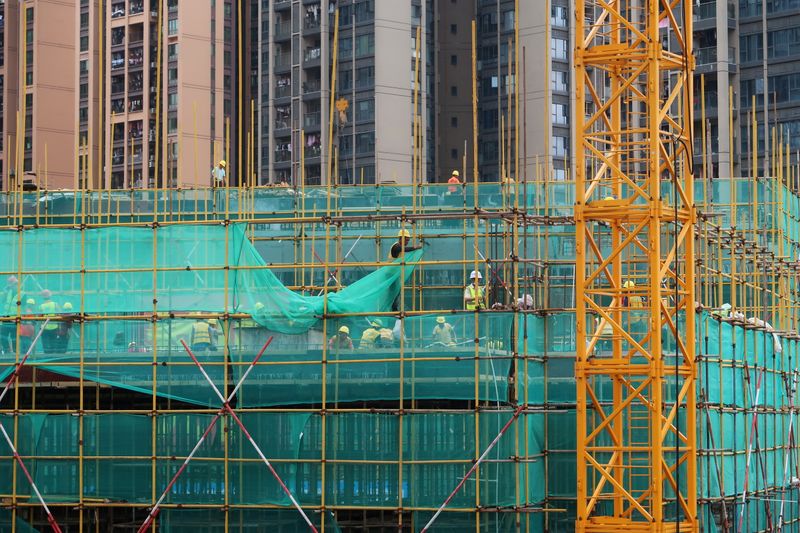By Lusha Zhang and Ryan Woo
BEIJING (Reuters) - Property purchases in China funded through bank loans fraudulently obtained by speculators are fuelling already red-hot real estate markets in its biggest cities and beginning to alarm regulators.
Four tier-1 Chinese cities, including Shenzhen and Shanghai, have reported since March that a probe by financial regulators found that 877.8 million yuan ($134.21 million) of bank loans were improperly used for property purchases.
Analysts say that was just the tip of the iceberg and the number could be significantly higher nationwide.
"The amount (of misused loans) could be hundreds of billions of yuan in China's tier-1 and 2 cities," said Hong Hao, head of research at BOCOM International in Hong Kong, an estimate based on assumptions including 2020 transactions and loan volumes.
The illegal diversion of bank funds presents a policy dilemma for Beijing, which wants to keep credit lines open to support businesses while ensuring loans are not misused.
Home prices in large cities have soared since last year, fuelled by relentless speculation that Beijing has so far failed to suppress, and in many cases funded by business loans granted by banks.
Regulators are worried genuine credit demand may get crowded out by the illegal property loans. They have asked local governments for a report on such loans by May 31.
"In some red-hot cities with strong expectations of home price gains and high levels of speculation, there are cases in which people fraudulently obtain business loans from banks for home purchases, and some even involved organised criminal activity," Zou Lan, head of financial markets at the central bank, told a media briefing on Monday.
"If this can't be contained immediately, it will not only affect the effect of property regulatory policies, it will also squeeze out credit resources for the real economy, especially for smaller firms."
The People's Bank of China (PBOC) and Ministry of Housing and Urban-Rural Development did not respond to Reuters requests for comment.
WHISTLEBLOWER
Big Chinese cities have imposed onerous conditions on buying residential property, including requiring buyers to have residential permits for up to five years and to fork up at least 30% of the purchase price in cash.
People, though, have come up with ways to try and circumvent them.
In an instance last year, an unidentified woman detailed her plan in an ad posted in some WeChat groups, seeking a joint investor among their over 3,000 members for a Shenzhen property purchase.
The so-called "stakeholder" would fund part of the 30% down-payment on a 7 million yuan apartment in the city, and they would jointly borrow the remaining 4.9 million yuan.
She would then use the home as collateral to apply for business loans via a shell company, and repay the 4.9 million yuan with the new bank loans, which carry lower interest rates compared to mortgage loans.
The two would later resell the home at a higher price and repay all outstanding debt. She would get a 5% cut from the sale.
The scheme was outlined in 102 screenshots of WeChat chat histories by an anonymous whistleblower on China's Twitter-like microblog Weibo (NASDAQ:WB) last week.
"I've been exposing their tactics for a while, and it's my third Weibo account as the previous ones were shut or suspended by the platform, but I knew it wasn't going to be easy," the whistleblower told Reuters.
Shenzhen authorities said last week they will investigate the WeChat groups described in the whistleblower's posts.

($1 = 6.5292 Chinese yuan renminbi)
